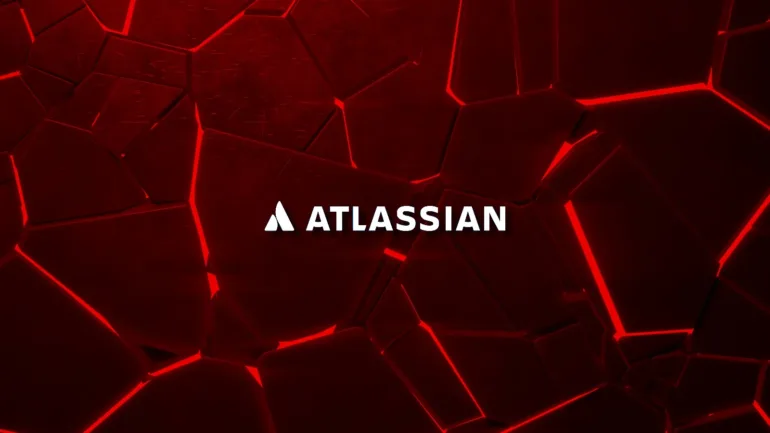TL;DR:
- Atlassian partners with OpenAI to integrate AI features into its collaboration software programs.
- OpenAI’s GPT-4 language model will help process employee tech support inquiries in Slack for Jira Service Management.
- In Confluence, workers can access explanations and relevant documents for terms they’re unfamiliar with and receive automated answers to questions typed in.
- Atlassian has integrated OpenAI into its technology stack, creating results that are tailored to each customer’s needs and leveraging Atlassian’s data.
- Microsoft, a top competitor and major investor of OpenAI, does not pose a threat to customer data privacy as OpenAI will not be training its models on Atlassian’s customer data.
- The new features will be available under the brand “Atlassian Intelligence” and will be accessible to customers who join the waiting list.
- Internally, Atlassian employees have already been using the new features, which have proven to be popular, particularly among team leaders.
- The pricing for Atlassian Intelligence has yet to be determined, and the amount of money Atlassian will pay OpenAI for GPT-4 remains unclear.
- Farquhar believes that the data stored in Atlassian will make AI stand out, providing customers with a “virtual teammate.”
- Microsoft’s GitHub subsidiary announced its collaboration with OpenAI for AI-generated messages to describe changes in pull requests. Farquhar stated that Atlassian has no announcements regarding its Bitbucket software.
- Other companies such as Duolingo, Morgan Stanley, Stripe, and Microsoft have also announced their integration of GPT-4.
Main AI News:
In a recent development, Atlassian, the leader in collaboration software, announced its partnership with OpenAI to integrate artificial intelligence features into various programs. This move is a result of the growing popularity of generative AI, a technology that enables machines to respond to human input using previous data.
With the help of OpenAI’s GPT-4 language model, which has been trained on extensive text sources from the internet, Atlassian’s Jira Service Management will now be able to process employee tech support inquiries in Slack with ease. For instance, employees can type a request to view a file, and the chatbot will make it happen, freeing up service agents for more complex requests.
In Confluence, a collaboration program by Atlassian, workers can access explanations and relevant documents for terms they’re unfamiliar with by clicking on them. The program will also provide automated answers to questions typed in by users based on information stored in documents.
After years of developing its own AI models, Atlassian has now integrated OpenAI into its technology stack, creating results that are tailored to each customer’s needs and leveraging Atlassian’s wealth of data. As stated by Scott Farquhar, one of Atlassian’s co-founders and CEOs, “We have a graph of work, and I believe we have one of the best in the world, spanning everything from design to development, testing, deployment, project management, and collaboration.”
Despite Microsoft being one of OpenAI’s major investors and a top competitor of Atlassian, the integration of GPT-4 into Atlassian’s programs will not pose a threat to customer data privacy. OpenAI will not be training its models on Atlassian’s customer data, thus not making the technology better by using Atlassian’s business.
These new features will be introduced under the brand “Atlassian Intelligence” and will be available to customers who join the waiting list. The invitation process will start in the coming months, and only corporate users who opt-in will be able to access these features.
Internally, Atlassian employees have already been using the new Atlassian Intelligence features, and they have proven to be quite popular, particularly among team leaders. Anu Bharadwaj, the President of Atlassian, has praised the Confluence feature that allows her to transform content style while writing it and finds it helpful when Atlassian Intelligence can identify the common thread across multiple products in development.
The pricing for Atlassian Intelligence has yet to be determined, and the amount of money Atlassian will pay OpenAI for GPT-4 remains unclear, as it depends on how heavily the new features will be used by customers. However, Farquhar believes that the data stored in Atlassian will make AI stand out, providing customers with a “virtual teammate” that has access to all the information that has been collected over the years.
In March, Microsoft’s GitHub subsidiary announced its collaboration with OpenAI, testing AI-generated messages to describe changes in pull requests. However, Farquhar stated that Atlassian has no announcements regarding its Bitbucket software, where developers also work on pull requests. Other companies such as Duolingo, Morgan Stanley, Stripe, and Microsoft have also announced their integration of GPT-4.

Scott Farquhar, co-founder and co-CEO of the software company Atlassian. Source: Martin Ollman. Getty Images
Conlcusion:
The integration of OpenAI’s GPT-4 language model into Atlassian’s collaboration software programs marks a significant step forward in the field of artificial intelligence and its application in the business world. This move will provide customers with a more efficient and user-friendly experience, making it easier to process inquiries and access information. The wealth of data stored in Atlassian will also provide a competitive advantage, creating a “virtual teammate” for customers.
The popularity of generative AI is growing, and Atlassian’s partnership with OpenAI is a testament to the company’s commitment to innovation and staying ahead of the curve. The pricing for Atlassian Intelligence has yet to be determined, but the company is confident that the data stored in its programs will make AI stand out. With other companies, such as Microsoft, Duolingo, Morgan Stanley, and Stripe, also integrating GPT-4, the future of AI in the business market looks promising.

